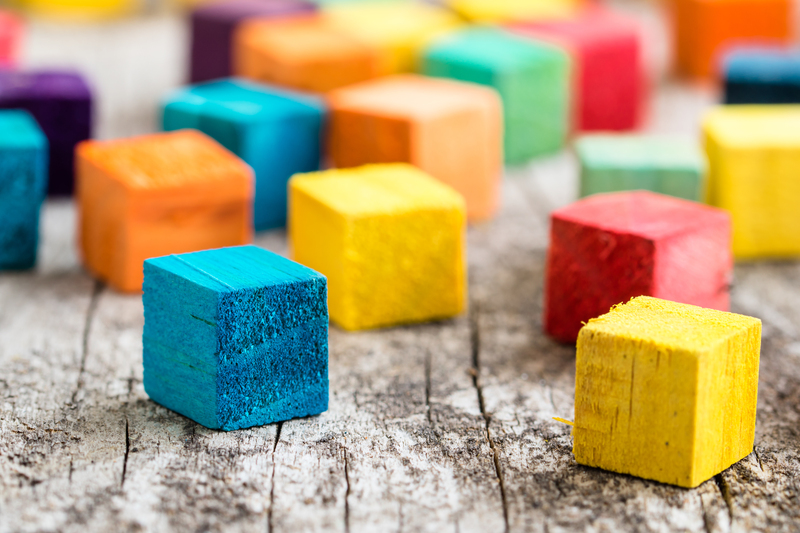Free Your Mind: The Stress-Relieving Power of De-cluttering
Are you feeling overwhelmed by the constant mess in your environment? Unlock the stress-relieving power of decluttering and discover how a tidy space leads to a calmer mind and a happier life.

Why Decluttering Reduces Stress
Our modern lives can often be overloaded--not just with responsibilities, but with physical clutter. This accumulation can have a profound effect on both our mental health and general well-being. Studies have consistently shown that eliminating clutter brings about relief from stress, increases happiness, and fosters a sense of accomplishment. Decluttering is more than a trend; it's a powerful strategy for creating a peaceful life.
Understanding the Link Between Clutter and Stress
- Clutter bombards our minds with excessive stimuli, making us feel anxious and unable to focus.
- A cluttered environment often leads to a cluttered mind, affecting memory, productivity, and emotional stability.
- Clutter can make it harder to relax, both physically and mentally, preventing us from unwinding at home.
In essence, decluttering for stress relief is not only about cleanliness--it's about creating a sanctuary for your mind.
The Psychological Benefits of Decluttering
Cleaning and organizing are direct forms of self-care. When you remove unnecessary possessions, you make space not just in your home but also in your thoughts. Let's delve into the specific mental health benefits of decluttering:
1. Enhanced Focus and Productivity
Visual clutter constantly pulls your attention away from what matters. With fewer distractions, your mind can concentrate clearly on the task at hand, enhancing both focus and productivity. This effect is particularly pronounced in workspaces and study areas.
2. Reduced Anxiety and Depression
A messy environment can raise cortisol levels, the hormone responsible for stress. In contrast, a tidy space promotes feelings of peace and control. Many psychologists recommend periodic decluttering to relieve anxiety and lift your mood.
3. Boosted Creativity
Freeing your space from clutter means freeing your mind for creativity. Without the subconscious noise of disorganization, you have the mental energy to innovate and explore new ideas.
4. Strengthened Relationships
Clutter can spark conflict between family members or roommates. A shared commitment to keeping a clean and tidy home encourages harmony and mutual respect.
5. Increased Self-Esteem
Achieving a clutter-free space is an empowering accomplishment. You'll feel proud, capable, and more determined to stay organized in other areas of your life.
Decluttering for a Stress-Free Life: Practical Strategies
Overwhelmed by the thought of getting started? Don't worry--decluttering is a journey. Here are actionable tips and strategies to make the process manageable and effective:
1. Start Small and Build Momentum
- Pick one small area--a single drawer, shelf, or corner--to begin your de-cluttering journey.
- Set a timer for 15 to 30 minutes. Short, focused sessions help prevent burnout and make the task less intimidating.
- Celebrate small victories as you go. Every cleared space is a step toward a calmer mind.
2. Use the Four-Box Method
Grab four boxes or bags and label them: Keep, Donate, Dispose, and Relocate. As you sort through your items, assign each to its appropriate box.
- Keep: Items you use regularly and love.
- Donate: Things in good condition that could benefit someone else.
- Dispose: Broken or unusable items.
- Relocate: Objects that belong in another part of the home.
3. Practice the One-In, One-Out Rule
For every new item that enters your space, commit to removing one. This helps maintain your progress and prevents future clutter build-ups.
4. Be Ruthless With Unused Items
- If you haven't used something in the past year, chances are you don't need it.
- Ask yourself if an item adds value or joy to your life--if not, let it go.
5. Digitize Paperwork
Paper clutter--bills, receipts, old statements--can quickly spiral out of control. Scan essential documents and store them securely online. Shred or recycle the rest.
6. Create Declutter Zones
- Designate specific areas in your home, such as entryways and desks, as clutter-free zones.
- Make it a daily habit to check and tidy these spaces, ensuring clutter never gets a chance to accumulate.
7. Maintain a Regular Decluttering Routine
Schedule a time--weekly, monthly, or seasonally--for ongoing organization. Consistency is key to sustaining the stress-relieving benefits of a clutter-free lifestyle.
Minimalism: The Ultimate Stress-Free Lifestyle
Minimalism takes decluttering to the next level. It's not just about removing excess but embracing intentional living. Minimalism advocates for owning only what serves a purpose, thereby reducing decision fatigue and unnecessary stress.
- Minimalist homes exude calm and simplicity, inspiring relaxation and mindfulness.
- With fewer possessions, you can focus on relationships, hobbies, and experiences that enrich your life.
- The minimalist mindset translates into less cleaning, fewer distractions, and a greater sense of gratitude.
Telltale Signs You Need to Declutter
- You feel anxious or irritable at home or work.
- Finding everyday items is a constant struggle.
- Your living or working space feels chaotic and overwhelming.
- You spend too much time cleaning or searching for things.
- There's little room to relax, play, or entertain.
If these resonate, it may be time to free your mind through decluttering.
The Emotional Challenges of Letting Go
Sometimes, the hardest part of decluttering for stress reduction is saying goodbye to belongings with emotional attachment. Here are strategies to ease the process:
- Reminisce with gratitude: Acknowledge the role an object played in your life.
- Take photos: Capture memories digitally before donating items.
- Remember your goals: Focus on the freedom and peace you're gaining.
- Draw boundaries: Set a specific limit for mementos you keep.
Decluttering for Mental Wellness: Beyond the Home
The stress-relieving benefits of decluttering aren't limited to your living space. Consider these additional areas for a holistic sense of calm:
- Digital Declutter: Organize your desktop, delete old files, and unsubscribe from emails you no longer read.
- Social Declutter: Assess your relationships and set healthy boundaries with toxic influences.
- Calendar Declutter: Prioritize activities that bring you joy and cut out commitments that drain your energy.
By clearing clutter from all aspects of your life, you cultivate a mindset of simplicity and tranquility.
Decluttering and Mindfulness: A Powerful Synergy
Combining mindfulness with decluttering maximizes stress relief. As you handle each object, ground yourself in the present moment--notice its texture, consider its value, and let go with intention. This practice not only clears your space but also calms your mind, reduces anxiety, and empowers you to make healthier choices moving forward.
Tips to Sustain a Clutter-Free, Stress-Free Mind
- Be intentional with purchases: Ask, "Do I need this?" before buying.
- Store similar items together: Makes finding and maintaining items easy.
- Embrace daily mini-tidies: Schedule five minutes a day for quick organization.
- Practice gratitude: Appreciate the peace and freedom your decluttered space brings.
- Enlist support: Get family or roommates involved in maintaining organized areas.
Decluttered Space, Decluttered Mind: Real-Life Testimonials
Countless individuals report transformative results after embracing a clutter-free lifestyle:
- "After cleaning out my closet, I felt a weight lift off my shoulders and noticed a significant drop in my anxiety." - Sarah, 29
- "Decluttering my desk has made me much more productive at work. I finally feel in control!" - Michael, 41
- "We made it a family tradition to spring-clean together. Our home feels happier and more harmonious than ever." - Fatima, 36
Your own journey toward a stress-free, clutter-free life can be just as rewarding.

Frequently Asked Questions About Decluttering for Stress Relief
Is decluttering scientifically proven to reduce stress?
Yes! Numerous studies link an organized environment to lower stress, improved focus, and greater overall well-being.
How often should I declutter?
It depends on your habits and needs--some prefer weekly check-ins, while others schedule out seasonal deep-cleans.
What if I don't have much time?
Micro-decluttering (5-15 minutes per day) can still have a big impact over time. The key is consistency.
Can decluttering really help with anxiety?
Absolutely. By eliminating chaos in your surroundings, you reduce mental noise and promote calmness.
Conclusion: Free Your Mind Now
Decluttering isn't just about having a neat home--it's about reclaiming your peace, clarity, and joy. When you create order in your environment, you free your mind to focus on what truly matters. Whether you're after stress relief, better mental health, or a simplified lifestyle, the power of decluttering is within your reach. Start today, and experience the transformation for yourself!
- Declutter for stress relief and welcome serenity into your daily life.
- Take small steps, make mindful choices, and let your mind--and your space--breathe free.